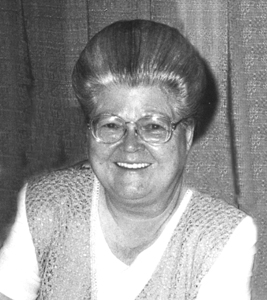NEWS FROM THE HILLS
 LAY MY HEAD BENEATH THE ROSE
LAY MY HEAD BENEATH THE ROSE
Darling, press me to your bosom,
As you did in days of yore,
Press your lips upon my forehead,
Ere I see the golden shore.
Life is from me fastly flowing,
Soon I’ll be in sweet repose,
When I’m gone, I’ll ask this favor,
Lay my head beneath the rose.
Chorus:
Lay me where sweet flowers blossom,
Where the dainty lilies grows,
Where the pinks and violets mingle
Lay my head beneath the rose.
Darling one, when I first met you,
When you gave your hand and heart
There were roses on your cheeks, love
And we vowed we ne’er would part.
One more kiss, for I am going
Far beyond all earthly woes
Let my grave be like your cheek, love
Covered with the blushing rose.
Some time ago I received a small notebook yellowed with age with handwritten copies of some very old songs. They are so sentimental and nostalgic that I want to share them. The old-timey songs were nearly always sad, but innocent and clean.
Some of the older readers may remember these, and there are a couple that I’ve heard Mom sing. They do pull on your heartstrings, and I’ll include them from time to time. They are a far cry from the music that our grandchildren listen to now. (My grandchildren think that I am an old fogy!)
We are enjoying a few glorious days of warmer temperatures and blissful sunshine. It is carved right out of pure springtime and dropped into this gloomy month of February just to gladden our spirits and encourage our hearts that this winter will end.
There are not a lot of signs yet that spring on its way. The dogs, Ruff and Minnie and I took a walk yesterday along the creek bank and around the garden and yards. We found one lone yellow crocus shivering in the breeze and some tiny spears of Easter flowers poking their heads cautiously through the soil as if fearful that another blast of snow would hit them.
February has always seemed like a gloomy month to me. The majestic icicles that hung from the rock cliffs are melting now in sodden heaps along the ditch line. The residue of snow, which formerly transformed our world into a white fairyland, lies here and there in dirty patches. However, February is the doorway into spring and we should welcome it.
The first few warm days bring a premature urge to the housewife to dig right in and clean out winter’s dirt. This really is the bleakest time of the year. The yard is strewn with debris that winter storms and wind have left behind, with plenty of help from the grandchildren and assorted dogs.
The house, which has been shut up tight against the frigid wind has accumulated a greasy film of dust and dirt, and bright sunlight streaming through the windows reveals cobwebs and grime that the dull days of winter had hidden. It is too early though, and there is so much to do that a person hardly knows where to start. It makes me want to leave the house, go out in the sunshine and bask on a comfortable rock like a lizard.
I usually start in the cellar, where last fall’s turnips have grown pithy and are sporting green leaves. The potatoes are growing long sprouts, and the apples need to be sorted. A farm housewife seems never to get finished. My personal papers are in a jumble, and I’ve come to the conclusion that I don’t really clean—I simply rearrange junk!
No one welcomes spring any more than the farmer. Spring calves are being born, and we are thankful for the mild days now. Wintertime is hard on the animals and farmers alike. I recall a conversation that my late brother Ronnie and I had a few years ago. We were talking about the joys of wintertime farming.
He remarked, “What I really liked was milking the cows when it was freezing cold.” I thought he was serious, and asked him if it was because his hands were cold. (He was being sarcastic, as usual.) “Have you forgotten,” he asked in disbelief, “about milking cows in the wintertime? (As a matter of fact, I never learned to milk.)
He continued, “The cow would drag her old tail through the snow, mud, and unmentionable things. Then the end of it would freeze into a nice ball of mud and ice. After you were seated on the milking stool and really engrossed in the job, around would come that tail and whop you in the side of the head with that frozen ball.”
I tried and tried to learn to milk, but never did get the hang of it. I wore one old heifer out trying to milk her. I finally had to call Mom to come off the hill and finish the job. By that time the cow was so aggravated that she wouldn’t give her milk down, and Mom got about a quart.
All of our boys except Matthew had milking duties before school each morning. We had one heifer with a most irritating habit. She would wait until you were almost finished milking, then plunge her foot in the bucket of milk. (Not every time, but often enough.) We would have to pour the milk into the pig slop.
We sold the cows after Kevin complained that no matter how much he showered after milking, he still got on the school bus smelling like a cow barn. At least we gave the boys some background, so that they could tell their own children (and grandchildren) how hard they had it growing up on the farm.
Yes, country youngsters were well acquainted with the joys of farming—and it all wasn’t a bed of roses. Yet, we learned lifetime lessons. We knew where our food came from, and the labor it took to place it on the table.
Gloria Kelly of Scott Depot sent a cute little poem that describes another phase of the farm.
THE ROOSTER
A neighbor we once had,
Had a rooster that was quite bad
He would charge anyone who crossed his sight.
But he would attack from the back and give quite a fright
One day as I played with the road at my back,
He jumped on my shoulders and began to attack.
Then Jimmy, my brother, to my rescue did come,
He went into the house and came back with Dad’s gun.
He took aim and with one shot, it was all over
That mean old rooster was pushing up clover!
- DAD’S LOVE - July 3, 2020
- HUNTING FOR “MERKLES” - April 24, 2020
- THE SEASON OF GOLD – News From The Hills - November 8, 2019


